Student Blog
Diversity
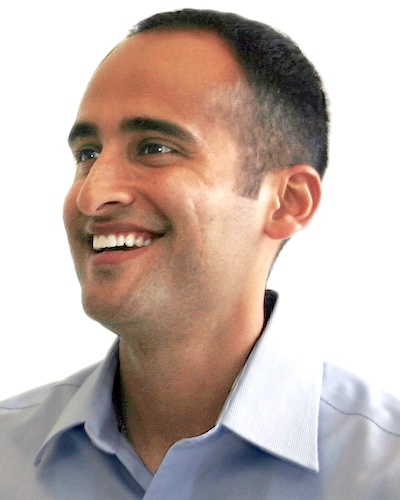
ANIMO! ⟩
November 16, 2012, by Ricky
Diversity Getting Involved What are OS/OT?
Two weeks back, in my role as student ambassador, I presented at the 2012 ANIMO Latino Young Men’s Conference (by a not-for-profit called Family Success by Design). This program features a full day of mentorship, motivational speakers, and empowering activities . . . and it’s pretty OT-based! The founder has been an OT practitioner for over 30 years. The main themes are education, financial literacy, and health. This was such a refreshing experience, and it was an honor to interact with and provide mentorship for all the young men who attended. It was great to see how talented, intelligent, and resilient these guys are. I also loved the craft project at the end (prolly the OT in me, haha).

I collaborated with one of my instructors to create and deliver a presentation on OT. Our talk was part Intro-to-OT and part motivational discourse on going to college and pursuing your dreams. Going into the conference, I was a little confused about why we were pitching OT to kids as young as 12 years old, but now I can see the whole picture. Not only is it important for these guys to be exposed to “successful” Latino men, but they also need to know about promising options for their future. The thing is, these young men are ideal candidates to become OTs in Southern California. They are male, and males are severely underrepresented in the profession. They are minorities . . . again, underrepresented. And, most speak Spanish. It’s important to note that cultural competence (and there are few better ways to immerse yourself in a culture than to speak the language) is vital to developing a therapeutic relationship and administering effective client-centered intervention.
The whole experience got me thinking about my own OT journey. I wonder how I would’ve responded to a presentation like this when I was 12. I think at 12 I was too busy trying to act cool. Anyhow, it took me a while to be honest with myself and accept that my true strengths and passions make me an ideal candidate for OT. I always knew I liked helping others and loved working with kids. That stuff just came natural to me, but my environment never gave me any indication that pursing something like OT could ever be a viable option. It wasn’t until I found myself working long hours as an accountant and asking myself “why?” Why was I working so hard? Is the paycheck enough? That set off this whole soul-searching episode in which I discovered OT. I wrestled with it. I would ask myself what my family and others might think. Would people think I was less manly? Would/should I care? It was rough, but I couldn’t deny myself anymore. I started working at a pediatric therapy clinic, just to make sure, and I was sold. Being an accountant and pragmatist, the numbers added up too (do you know how much money OTs make?! Haha).
For any of you guys that may be interested in something like OT, but don’t think it’s a viable option, I encourage you just be honest with yourselves. Take a risk and volunteer for things like ANIMO — they need more mentors like you, even if you don’t pursue OT. Trust me, I know your heart yearns for experiences where you can just let go of insecurities and just be genuine, with others and yourself.
⋯
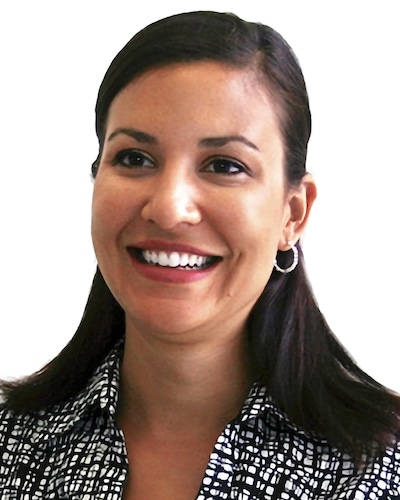
Life Rolls On ⟩
September 17, 2012, by Amber
Diversity Getting Involved What are OS/OT?
This weekend I volunteered for a wonderful organization called Life Rolls On. This foundation is near and dear to the heart of my classmate Marisa, and she regularly recruits students from the occupational therapy program to volunteer their time. According to their website, Life Rolls On is a non-profit organization dedicated to improving the quality of life for young people affected by spinal cord injury and utilizes action sports as a platform to demonstrate the infinite possibilities beyond paralysis. More than 1.2 million people in the United States have sustained spinal cord injury and approximately 6 million Americans live with a form of paralysis. A subsidiary of the Christopher and Dana Reeve Foundation, the organization was founded by Jesse Billauer, a professional surfer and motivational speaker who established Life Rolls On after he sustained a spinal cord injury while surfing.
The event this weekend was called They Will Surf Again and took place in La Jolla, just north of San Diego. Approximately 50 individuals of all ages (3-63) with spinal cord injuries became surfers for the day. A team of hundreds of volunteers mobilized to organize the surfers, help them into wetsuits, and take them into the water. The surfboards were adapted with short rails and the surfers lay on their stomachs. A team of volunteers took them dozens of feet offshore and pushed them into perfect waves. It was a sunny day and the conditions were beautiful, so many surfers enjoyed very long rides. It was inspirational to see their accomplishment and a joy to see their faces beaming with excitement.
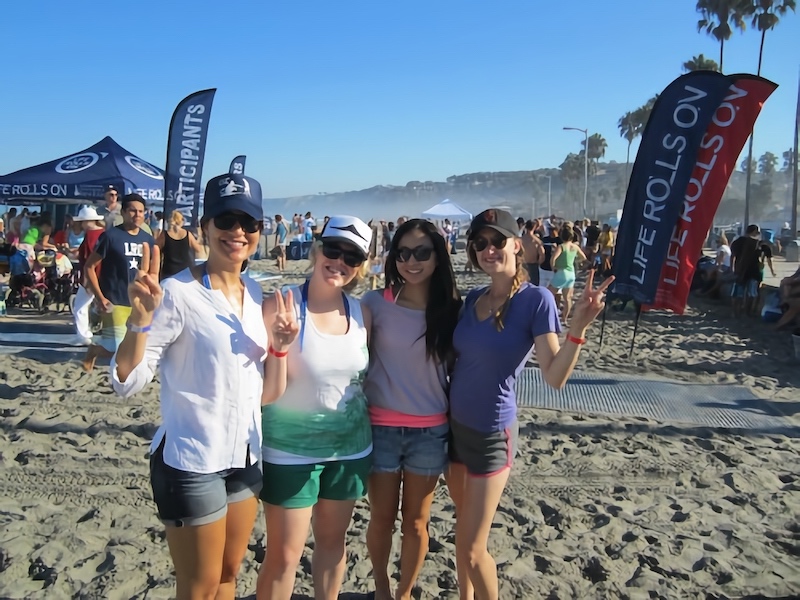
⋯
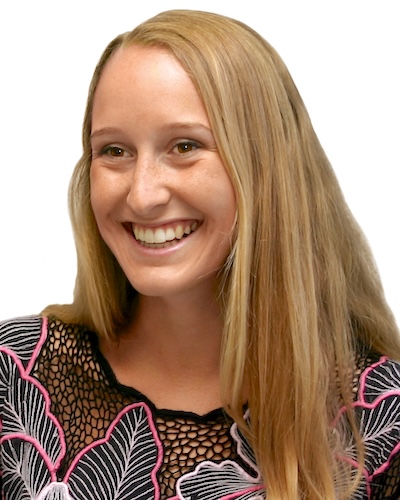
International Holiday ⟩
December 13, 2011, by Kimberly
Community Diversity International
Last week we had an international student dinner to celebrate the end of the semester. Everyone brought a traditional dish from their culture or from their family. All the food was amazing and each dish was even judged for prizes according to taste and presentation. My favorite part of the evening however was sitting down at the long table in the OT Lifestyle redesign Center and talking about all of our different holiday traditions. There was a large Christmas tree at the end of the room which spurred on discussions of Christmas and where the tree comes from, how to decorate it, what the significance of the star is, etc. We also heard about the Chinese Moon Festival and the history behind eating moon cakes. We heard a YouTube recording of an Indian song sung in all the different dialects and languages the nation speaks. How being married in some cultures means you are an adult and thus need to now provide presents for all the kids as opposed to receiving them. There were discussions of what family traditions surround this time of year for everyone and whether or not people were getting to go home. It was a nice celebration in the middle of study week and gave us a chance to pause. I think the fact that we all take time during this season to pause it one of my favorite parts. So, even if you are still working or taking that last final, remember to pause and reflect on your traditions, your celebrations, the people around you and all that has happened this past year.
⋯
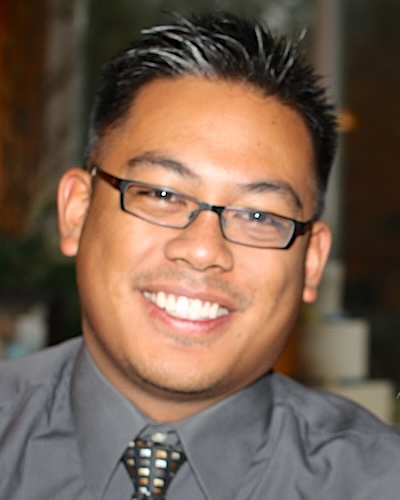
Occupational Justice ⟩
November 9, 2010, by Pierre
Diversity What are OS/OT?
What is occupational justice? Is it like social justice? Kind of. Social justice may look at making opportunity equal to all to reduce differences; occupational justice looks at the unique differences of individuals and groups and how to help them access opportunities as they relate to occupations. It’s interesting to be learning more about how occupational therapy goes beyond the clinics and pervades our society, our culture, politics, and so on. OT in Occupational Justice attempts to meet the unique needs of the individual in order to access the opportunity of health through occupation.
Do you have a passion to help others and to help them access their natural need and desire to ‘do’ activities, to live life, and to be a part of our society? Occupational therapy is a field that is present in many different areas — this is a sign of OT’s strength. Our profession pervades so many aspects and it’s due to the great importance that people need and want to do occupations-activities-life. We seek to help others improve and access a quality of life that is rightfully theirs within a diverse culture such as ours.
⋯
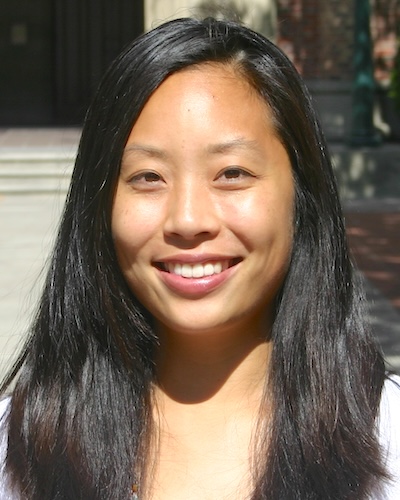
The Influence of Language ⟩
November 8, 2010, by Yao
Diversity What are OS/OT?
Language is more than just what you say and it is important that we enable rather limit in our occupational therapy dealings.
I recently attended a charity event that was geared towards promoting awareness of an issue that has affected countless women across the globe, sex trafficking. Attending this event re-enforced the idea that language is a powerful form of expression and can truly affect the way that one presents oneself as well affect how people view and treat others. The event itself although well intentioned employed a host that seemed to be ill informed about how to properly address the issue of sex trafficking and those that have survived it and are affected by it. In my opinion, the host should have been using language that empowered the women affected and placed them in a positive light as survivors but instead used language that marginalized these women as “damaged” people that had “chosen” this life and they were not able to help themselves. The language that was used placed these survivors in a category of disempowerment as well as subordination, instead of encouraging a new life full of opportunities the language seemed to permanently remind them of their traumatic past and permanently place them in a subordinte position to everyone else. Comments such as “I have nothing in common with these people” and “we help these people live the right way” were made. Instead of raising awareness and increasing empathy, it seemed to further differentiate and marginalize, placing those that have not experienced the effects of sex trafficking in a more highly regarded place in society. It seemed as if the language was solely identifying this population through a label rather than their individual characteristics — as if dehumanizing the already dehumanized. Instead of teaching acceptance and expressing “awe”; in the strength and endurance of these women, the language seemed to imply that they had been a part of something that they should be ashamed of and that the organizations hosting the event could help them assimilate into mainstream society. Not once did it speak of the strength of these women, not once did it emphasize their adaptability, and not once did it promote their individuality. They were seen as a part of a group that needed help: victimized women — no more, no less.
In occupational therapy there is a concept that is used when addressing the various populations that we work with and it’s called person-first language. Person-first language is an important tool to be conscious of not only as an occupational therapist but as a citizen of the world as well. By definition:
. . . people with disabilities be identified first as individuals. “Person First Language” — referring, for example, to a “woman who is blind”; rather than to “a blind woman” — is a form of political correctness designed to further the aims of the social model by removing attitudinal barriers. (“Definition of Disabilities”, 2010, disabled-world.com/disability/types)
It should also be recognized that some times person-first language is not preferred depending on the person you’re talking to but for this event in particular I felt that person-first language would have been a more appropriate choice of language, focusing on the abilities and opportunities that these women do posses and focusing on their ability to engage in life and obtain a quality of life that is most beneficial and satisfying to them.
I in no way mean to imply that these organizations didn’t help these women. These organizations are great resources and provide many supportive services. It was the language used by this particular host that had altered my view of this event. It only took a few words to change the mood of that night. Imagine what a few words can do to a person. As much as people play with language in politics and law, it is extremely important to consider how it can affect both patients and providers in the medical sphere. A label, a category and a group all have certain connotations and many of those connotations can limit someone’s potential. Occupational therapists understand that our clients are constantly changing throughout treatment and therefore find it important to be cognizant of the language used to address patients and their situation. Words can either be a vehicle for positive change or a powerful tool to stop it. We should think twice about the language we use.
⋯





